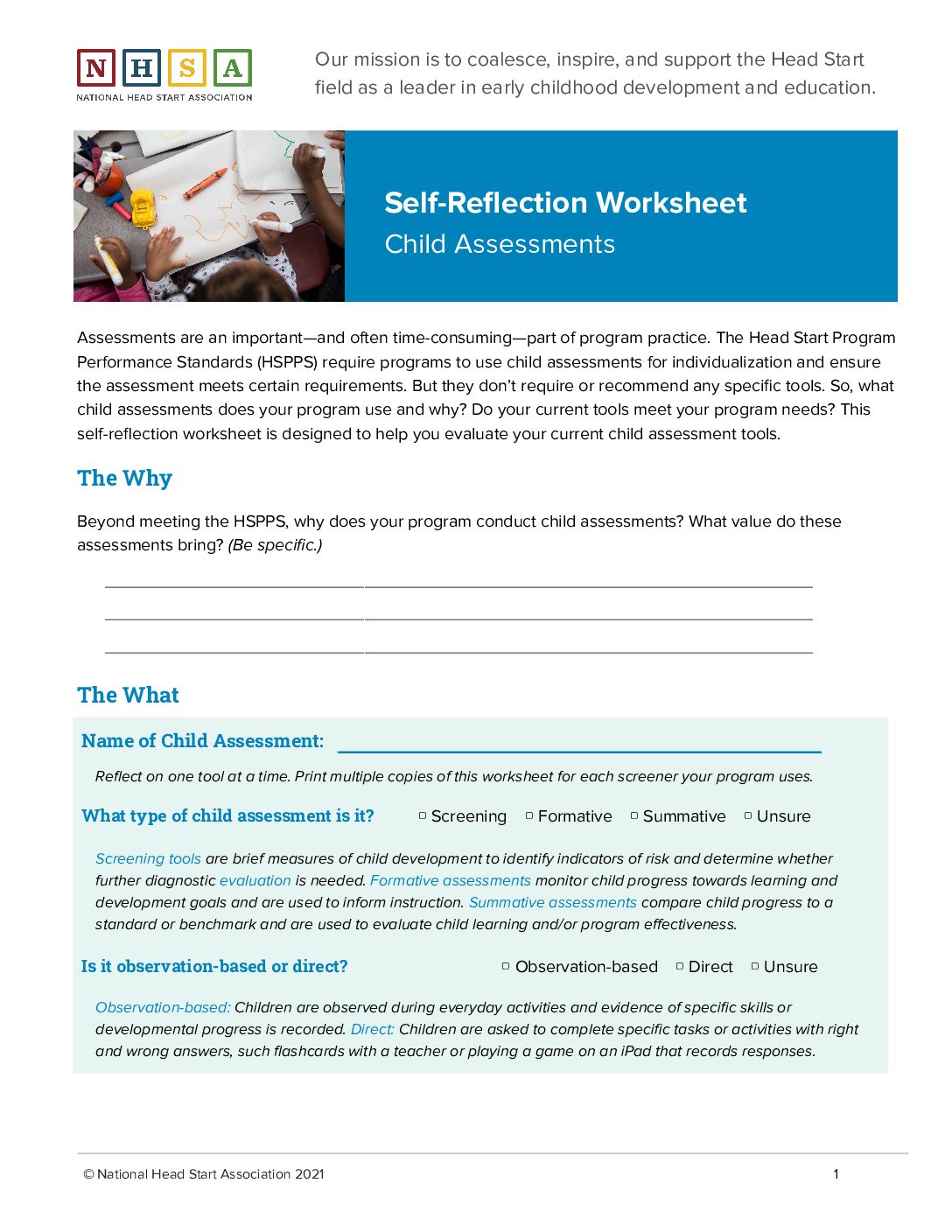Child assessments determine how young children are developing across all developmental domains and evaluate their strengths, progress, and needs.
It is an ongoing process that fulfills multiple purposes. Trends in assessment data can inform curriculum planning, teaching, and individualizing for each child across the Head Start Early Learning Outcomes Framework. The quality of the assessment data can point to areas where staff need additional training or support when assessing and using assessment tools.
Assessments are an important—and often time-consuming—part of program practice. The Head Start Program Performance Standards require programs to use child assessments, but they don’t require or recommend any specific tools. Early childhood educators are often responsible for choosing, administering, interpreting, and using the results of child assessments. Many report feeling overwhelmed and frustrated with these responsibilities.
Others are frustrated by the limitations of the measures. The Oklahoma University’s Early Childhood Education Institute (ECEI) recently examined measures currently available to assess very young children, specifically infants and toddlers, noting fewer choices designed for use with children younger than 36 months of age.
There are many successful and innovative approaches to assessment in programs across the country. Understanding the different types of assessment and how to use them to support reflection and planning is key. For example:
- Southwest Georgia Community Action Council made their assessments more relevant for local Kindergarten teachers by contextualizing data into a familliar format.
- Family Resource Agency created a visualization to show children’s developmental progress from the beginning to the end of the program year.
- Head Start for Kent County documented three-year-old preschool children who participated in the Early Head Start home visiting programs scored higher on the school readiness measure compared to their peers across all domains.
So, what child assessments does your program use and why? Do your current tools meet your program needs? This self-reflection worksheet is designed to help you evaluate your current child assessment tools.

